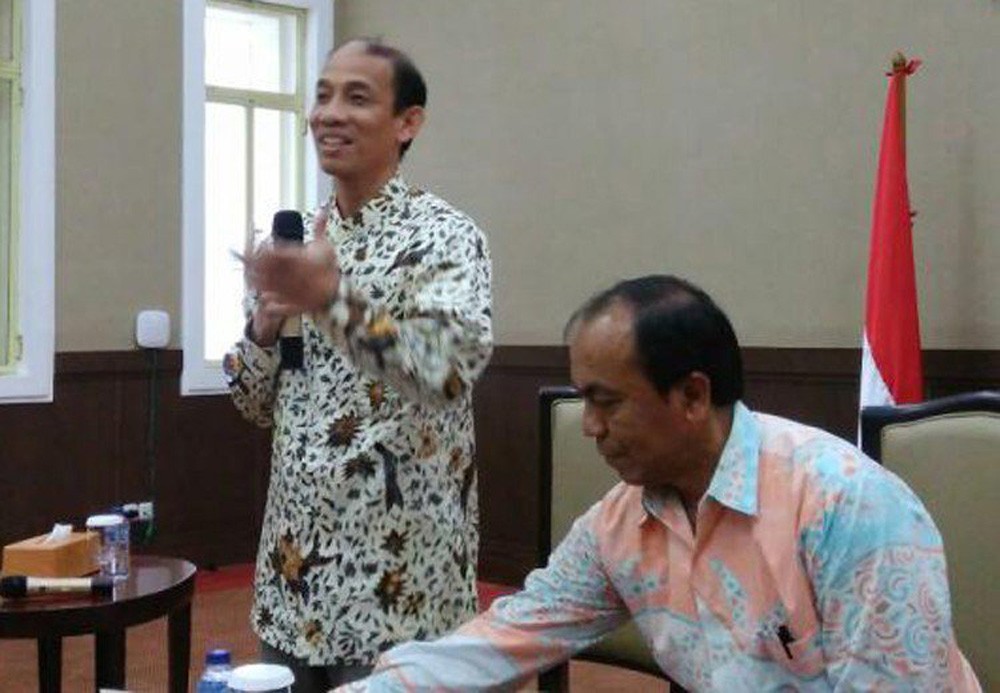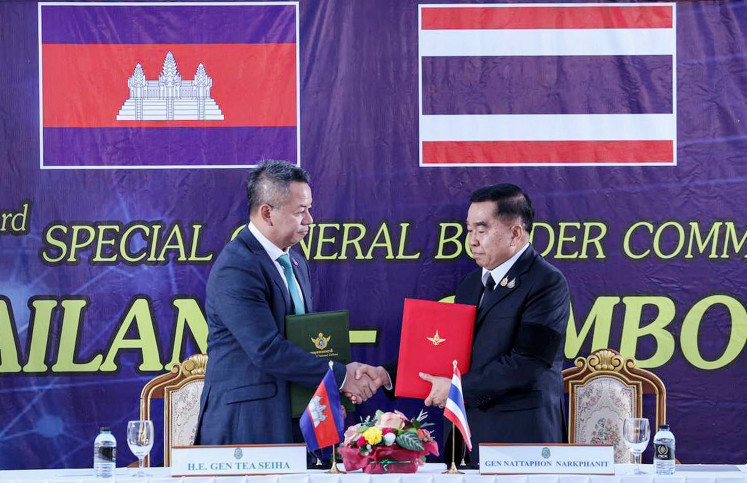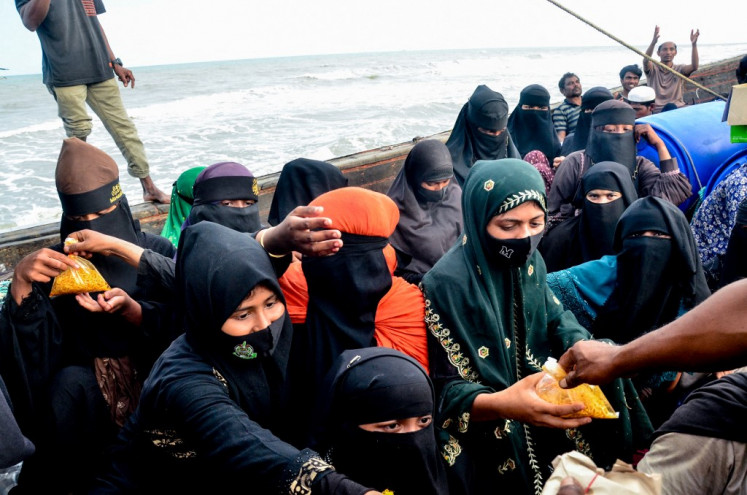Popular Reads
Top Results
Can't find what you're looking for?
View all search resultsPopular Reads
Top Results
Can't find what you're looking for?
View all search resultsNationalism in a passport
Change text size
Gift Premium Articles
to Anyone
T
he termination of Arcandra Tahar’s position as energy and mineral resources minister came as a shock to many. As expected, some people approved of President Joko “Jokowi” Widodo’s decision to remove Arcandra from office on accusations of his holding dual citizenship, while others objected to the decision, arguing that “nationalism” — an elusive term by any measure — cannot be measured through a passport.
I am an Indonesian who has been living abroad for the past three years and do not have any intention to become a dual citizen, at least for the foreseeable future — and I argue that the termination of Arcandra’s position and current “nationalism” debate in Indonesia should be read between the lines.
The discussion has to go beyond whether or not owning a passport is enough to prove one’s nationalism. This is the case because, first of all, no single tangible measure serves to prove one’s devotion to the nation, and second of all, there are always marginalized voices when it comes to applying a concept as complex as “nationalism” in a country as diverse as Indonesia.
As an ideology, nationalism rose in England and Germany in the 19th century. It is an ideology that primarily builds on a single political, cultural and linguistic dimension within which individuals share an exclusive honor to praise them and devalue others. In short, like many forms of love, it blinds you.
However, what is important to remember from the historical origin of nationalism is that it was an ideology born out of mostly homogenous socio-political facts. Though there were differences, 19th century England and Germany were nothing like contemporary Indonesia, with its 1,128 tribes who speak 746 different languages, the majority of which are socially, politically, culturally and economically marginalized. Once again we must ask ourselves: Whose “nationalism” are we talking about?
We may say that the reign of the New Order has passed, but we cannot ignore that the socio-political reign of the Javanese has yet to cease. Our only non-Javanese president, BJ Habibie, served for 18 months before relinquishing the presidency to another Javanese president, Abdurrahman “Gus Dur” Wahid.
Our economic and development policies are still largely drawn based on the scale of proximity to Jakarta. Our political culture is rife with examples of local leaders going to Jakarta to pay respects to the “central command” in order to get a piece of the development cake.
Of course some things have changed since the demise of the New Order, though one cannot be certain if this is a thoroughly positive change. The Islamization of the national political stage is one of those grim changes.
At least before you only had one glass ceiling to break if you aspired to be a national-level politician, namely the ethnicity barrier.
Now you have two barriers before you and any political seat at the national level, ethnicity and religion. You had better be a Muslim to be a policymaker, or if you are a non-Muslim you had better leave the Muslims alone to decide on whatever policies they want to have.
This is the kind of “nationalism” that we talk about now. It is the “nationalism” of the Javanese and the Muslims. It is the “nationalism” of the majority. It does not matter what the Papuans or the Malukuans think about how to manage the country better — so long as most of political and economic resources are centralized in Jakarta, the country is “fine”.
This religion-ethnic nationalism is what is fueling us right now. We are so offended by the idea of bi-nationalism because we see it as a form of betrayal, not to our country, but to our way of seeing nationhood as a patron-client relationship. We are furious to see the fact that some of our brightest fellow citizens do not depend on our government to make a living, thrive and succeed.
Our political regime struggles with a realization of its incapability to provide a space for its citizens to flourish.
We need to have a nationwide conversation — from Aceh to Papua — to transform our perspective on “nationalism”. There has to be a shift in our understanding of “nationalism”. We must transform ourselves from an abstract community with a supposedly homogenous identity in order to embody a spirit of diversity that stems from our wealth of socio-cultural and religious differences.
We need to start proving our love for our country by scrutinizing our own cultural and religious biases, and yes I mean us, Javanese Muslims. We can start small by letting our non-Muslim brothers and sisters pray in the legislature and other state ceremonies; by building excellent universities in Papua, East Nusa Tenggara, Kalimantan and other marginalized parts of the country, that suit local needs, aspirations and cultural identities; and more importantly, by providing greater resources for our fellow Indonesians in the easternmost and westernmost parts of the country.
By doing that, maybe, just maybe, we will be able to appreciate the true meaning of “independence”.
Merdeka!
__________________________
The writer is a PhD student in theology at the University of Notre Dame, Indiana, US










